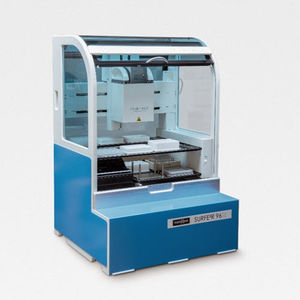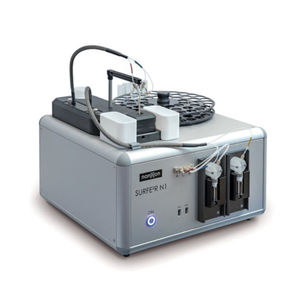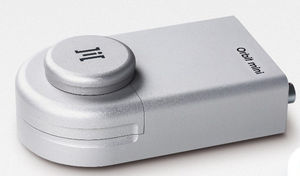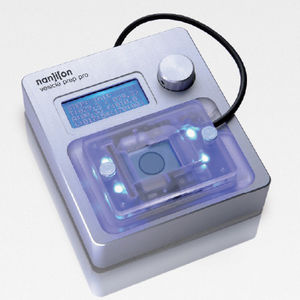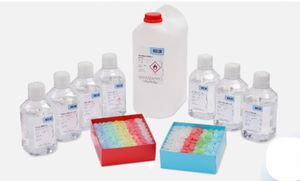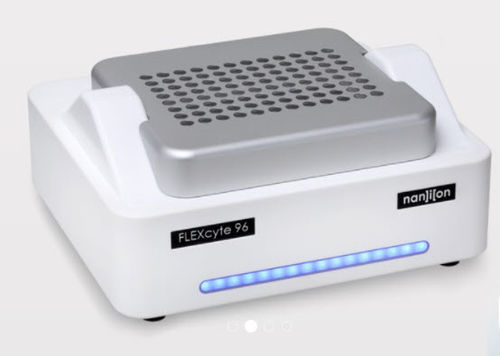
- Laboratory
- Laboratory medicine
- Cellular screening system
- Nanion Technologies
Automated cellular screening system FLEXcyte 96cardiology

Add to favorites
Compare this product
Characteristics
- Type
- automated
- Other characteristics
- cardiology
Description
The FLEXcyte 96 brings in vitro contraction force measurements of cardiac cells to a new dimension. By using a well-defined, flexible substrate for cardiac cells, the system leverages maturity and mature responses of stem cell-derived cardiomyocytes to pharmacological compounds in a higher throughput format. In the 96-well plate, the cells adhere as monolayers on the flexible substrates and the contractility of the synchronized cell layers are recorded. This unique technology allows for recordings in a native-like environment close to mechanical conditions of the heart. The FLEXcyte 96 is a turn-key system for structural and functional contraction force recordings in cardiotoxicity, safety and efficacy screening and basic research.
The FLEXcyte 96 comes as an add-on for the CardioExcyte 96. With less than 10 μm in thickness and sophisticated surface modification, the polydimethylsiloxane (PDMS) membranes of the FLEXcyte 96 disposable plates offer physiological elasticity of native human heart tissue and strong mechanical support. While being deflected by the weight of the culture medium, rhythmic contraction of the cardiomyocytes lift the membranes in the 96-well upwards. By measuring the changes in deflection, the mechanical stress can be calculated.
The system has been validated with stem cell-derived cardiomyocytes from several providers (Ncardia, FUJIFILM Cellular Dynamics, Inc. (FCDI), Axol and NEXEL). Human induced pluripotent stem cell-derived cardiomyocytes (hiPSC- CMs) display positive inotropic responses, no additional stimulation of “cell maturation” is necessary. Cardiac contraction force can also be measured on patient-derived cells.
VIDEO
Catalogs
CE96
6 Pages
*Prices are pre-tax. They exclude delivery charges and customs duties and do not include additional charges for installation or activation options. Prices are indicative only and may vary by country, with changes to the cost of raw materials and exchange rates.








